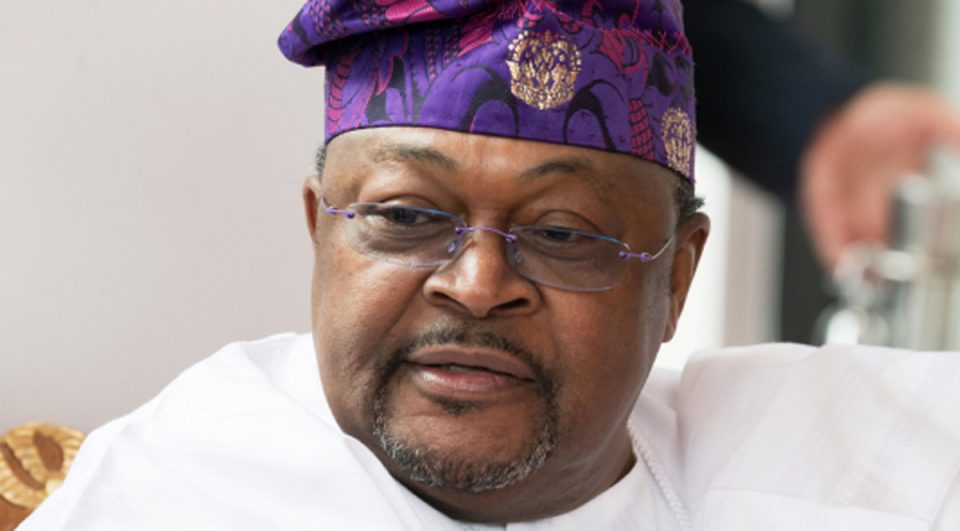Since the berthing of Glo1 submarine broadband cable in Nigeria in 2009, Nigeria has witnessed the landing of several submarine cables like MainOne, MTN WACS, and Equiano, that are driving digital transforming in Nigeria.
Chairman of Globacom, Mike Adenuga Jnr, who celebrates his birthday every April 29, no doubt, has transformed the telecoms and technology landscape of Nigeria since 2009, with the landing of Glo1 submarune cable from the United Kingdom.
Since the landing of Glo1, Nigeria has experienced the landing of several submarine cables like MainOne, MTN WACS, and recently Equiano, that are driving digital transforming in Nigeria. With the various submarine cable landing, several data centres are now springing up in Nigeria, especially along the Lekki corridors in Lagos, to take advantage of the broadband capacities being offered by the different submarine cables.
In the last one year, Nigeria has witnessed the launch of new data centres like MDXi that now powered by Equinix, Kasi Cloud Data Centres, Airtel Data Centre, and Africa Data Centres, which are additional data centres to the existing data centres like Rack Centre, Medallion, among others.
The landing of submarine broadband cables and springing up of new data centres in Nigeria, are fast driving technology innovation and investment opportunities.
In the last one month, Lagos has attracted over $1 billion worth of committed investment from technology giants like Microsoft who opened its new African Development Centre in the state. Google, last week, launched its state-of-the-art submarine internet cable in Lagos, and Equinix also recently completed its acquisition of MainOne with a $320 million deal.
Putting the level of investment that Lagos State alone will attract in the next few years into context, at the recent launch of MainOne’s MDXi Lekki II Data Centre, the Vice President, Growth and Emerging Markets at Equinix, Judith Gardiner, said: “Amsterdam as a key hub, with a population of one million people has nine Equinix Data Centres with over 106MW capacity. Lagos, with a population of over 20 million, has the potential to far exceed this footprint. We are committed to bringing our capital, expertise, knowledge and customers to accelerate the digital age in Nigeria”.
Glo1 Submarine Cable
As far back as 2009, Adenuga single handedly landed Glo1 submarine cable at the shores of Lagos, a development that triggered the landing of several other submarine cables in Nigeria.
The Glo submarine cable made a historic landing in Alfa Beach, Lagos, Nigeria, in 2009, and it has since then, reduced the cost of bandwidth, which has translated into many possibilities in the Information and Communications sector of the Nigerian economy.
The project, which was jointly executed by Globacom and its partners, Alcatel Lucent, gave Nigeria lead in telemedicine, eCommerce and egovernance among other practices that transform economies.
Speaking at the scene of the landing, the then Globacom’ Executive Director, Human Resources, Mr Adewale Shangowawa, noted that with the landing of the Glo1 submarine cable, Globacom has scored another first and as well has taken a bold step to give Nigeria the lead in the broadband revolution in Africa.
The 9800km cable cane from Bude in UK and connects Nigeria to the rest of West Africa and the UK, with landing points in Nigeria, London and Lisbon in Portugal. It is deploying 16 branching units to connect countries in West Africa.
Globacom became the first single telecommunication company in the world to own its submarine cable. The high capacity Glo 1 optic fibre cable brings direct connectivity between West Africa, the UK and the rest of the world.
The Glo1 submarine cable connects 14 West African countries through the branching units to the rest of the world, and it has continued to boost economic activities in the region, create job opportunities and serve companies in Europe and Africa.
Internet Penetration
The landing of Glo-1 submarine cable in the country, had since crash cost of bandwidth and induced a new wave of internet revolution.
According to Globacom, the provision of infrastructure like the submarine cable, Glo-1, and other fibre links nationwide, have repositioned Nigeria in terms of telecommunications development and services.
Aside internet penetration, Glo said its submarine cable would continue to serve several businesses, including data centres that fast springing up in Lagos and other parts of the country.
Per Second Billing System
From inception, Globacom rolled out its telecom services with per second billing system, when other telecoms operators were still billing in minutes a development that crashed the cost of telecoms services across network in Nigeria.
Before the rollout of Globacom, other telecoms operators were charging call termination rates in minutes and they would quickly round off any call that terminates in seconds, into minutes and charge the customer in minute.
Telecoms subscribers who saw the development as rip-off, complained and asked for per second billing system, but the existing operators at that time, said it was practically impossible to introduce per second billing system in the Nigerian telecoms sector. Globacom however proved them wrong and changed the narrative by introducing per second billing system on its network, from inception of rollout. Shortly after Globacom introduced per second billing, all other operators changed their billing systems to per second billing, a development that crashed cost of telecoms services across all networks in Nigeria.
Adenuga has greatly transformed the Nigerian telecoms and technology landscape, and he deserves to be celebrated at 69.




